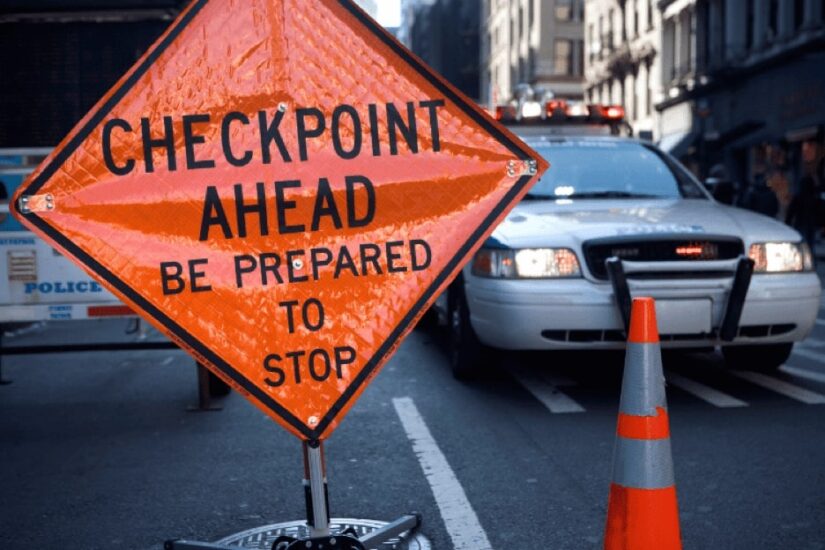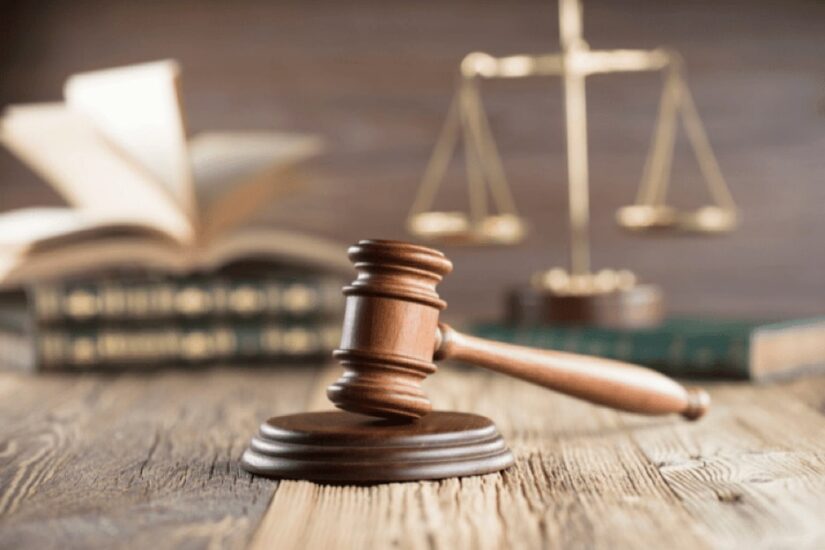November 16, 2023
A DUI (driving under the influence) or DWI (driving while intoxicated) checkpoint or roadblock is defined by US law to be a specific location set up by law enforcement officers. At these locations, cars or people are searched by officers before being allowed to continue on their route.
The aim of these searches in particular is to detain drunk drivers before they harm themselves or others. Yet, not all states enforce it. So, are DWI checkpoints legal in Texas?
The quick answer is no.
In this post, we’ll talk about what a DWI entails and why they’re not legally valid in The Lone Star State.
What Is Meant by a DWI Checkpoint?

DWI checkpoints are roadblocks set in place and operated under the jurisdiction of law enforcement. They’re designed to check the sobriety of any driver passing through.
They’re typically set up along Texas highways and major roads usually during long weekends and major holidays when drivers are more likely to be intoxicated while driving.
DWI checkpoints allow police officers to apply a breath test to anyone they suspect—within reason—of being impaired due to the influence of alcohol or drugs. Law enforcement can determine a reasonable suspicion through a number of ways like if the driver slurs their speech, has bloodshot eyes, or smells of alcohol.
In addition to a breath test, aka breathalyzer, law enforcement may also submit the driver to field sobriety testing. These tests consist of different balance and coordination exercises that determine a driver’s level of impairment.
In the event that officers suspect signs of intoxication, the driver may be arrested for DWI criminal charges and taken to the police station. First-offense penalties for those 21 years or older are 72 hours to 6 months in jail. On the other hand, a second offense carries a harsher punishment of 30 days to 1 year in jail.
During trial, the prosecutor has to admit all evidence gathered at the checkpoint. In addition to the fact that police had probable cause to pull over the driver, the prosecutor must prove that all aspects of the checkpoint were carried out in a correct and lawful manner.
Are DWI Checkpoints Legal in Texas?
Driving while intoxicated is against the law in Texas. This means that police can arrest you for drinking and driving anytime they have probable cause to suspect an individual of driving while intoxicated.
However, in Texas, preset sobriety checks are considered to be unconstitutional because, as per Texan jurisprudence, police don’t have initial probable cause for stopping drivers. It was in 1994 when the Texas Court of Criminal Appeals held that DWI checkpoints are considered to be an unlawful search and seizure as they violate the Fourth Amendment rights of drivers in Texas.
Furthermore, courts in Texas have held that DWI checkpoints go against Article 1 Section 9 of the Constitution of Texas. According to Article 1(9), every person in Texas has the right to be protected from unreasonable searches and seizures. As such, any evidence acquired from these illegal searches is inadmissible in court.
However you may run into DWI checkpoints if you travel in any of the other 38 states and the District of Columbia where these checks are legal. These states have adopted the US Supreme Court’s position, which maintains that the primary purpose of these checkpoints is to promote public safety by keeping intoxicated drivers off the road.
According to the Supreme Court, there’s a greater need to maintain public safety, which far outweighs an individual’s right to privacy.
While Texas acknowledges this view to be correct, they still can’t declare checkpoints to be legally valid simply because they promote public safety. Texan courts believe that there needs to be a higher regard for how law enforcement conducts DWI roadblocks.
In other words, in the eyes of Texas law, any check needs to be conducted in such a manner that doesn’t infringe on the individual’s right to privacy.
Exceptions to the Rule

While DWI checkpoints may be prohibited in The Lone Star State, Texas law enforcement may still enforce them in two ways: probable cause and no-refusal weekend.
Probable Cause
One way a sobriety checkpoint can be considered admissible in court is if the police officer has a valid reason for motioning a driver to pull over. Probable cause can occur if the officer notices a driver breaking a certain traffic law or driving haphazardly along the road.
This gives law enforcement the right to set up a sobriety checkpoint. Subsequently, if a driver fails a field sobriety test or shows certain observable factors, such as slurred speech or incoherent responses, then the officer has the right to ask the driver to submit either a breath, urine, or blood sample.
If the driver refuses, it can be used against them as a negative inference as not obeying the law during their criminal trial.
No-Refusal Weekends
No-refusal weekends refer to a pre-established period commonly associated with heavy drinking and driving. These are typically three-day weekends or the holiday season.
At any other time, a driver can refuse to give a breath, urine, or blood sample to test for blood alcohol concentration (BAC) levels at a checkpoint. However, during ‘no-refusal weekends,’ police can override a driver’s right to refuse testing by obtaining a court order.
These warrants allow police to take any type of sample they deem necessary from a suspected driver who refuses to provide a sample upon request. In addition, local jurisdictions provide law enforcement with extra assistance and personnel during this time to make sure the process is carried out efficiently and by the law.

It’s worth noting that police are expected to prioritize a driver’s constitutional rights even if they suspect them of being intoxicated.
To Sum Up
Are DWI checkpoints legal in Texas? No.
The only way law enforcement can conduct a legal sobriety check is if they have a valid reason for pulling over a driver. This could be anything from breaking a traffic law to swerving dangerously to speeding.
Also, no-refusal weekends help Texas police increase the enforcement of DWI laws. All these efforts aim at reducing the number of drunk drivers while making the roads safer for everyone. If you are facing a Criminal Defense Lawyer Montgomery County, Houston, Harris, Galveston, or Fort Bend Counties, contact The Napier Law Firm today to schedule a free consultation.